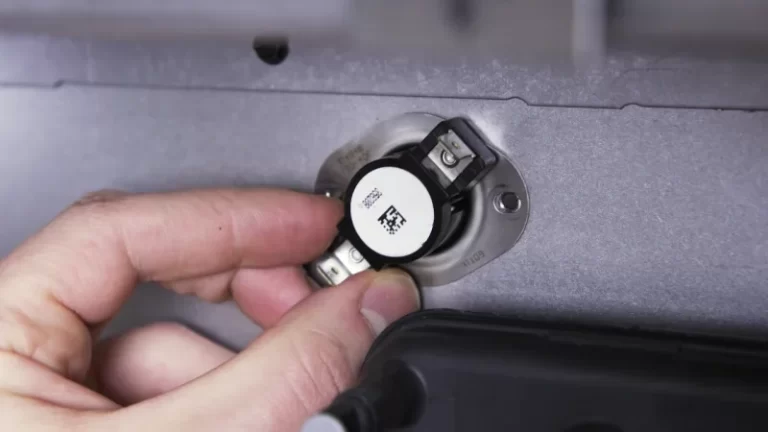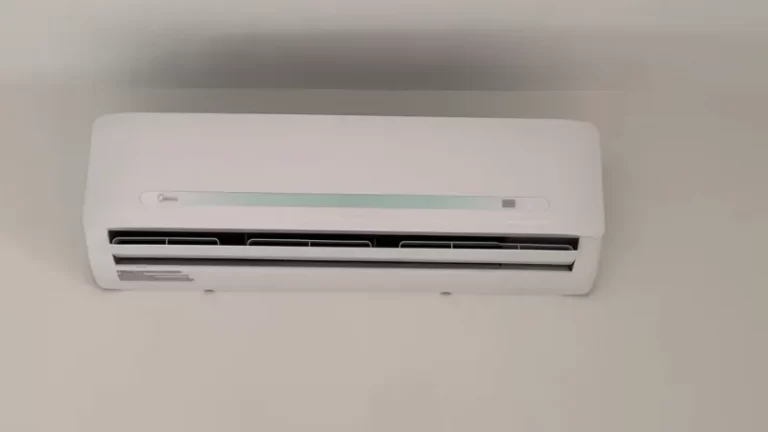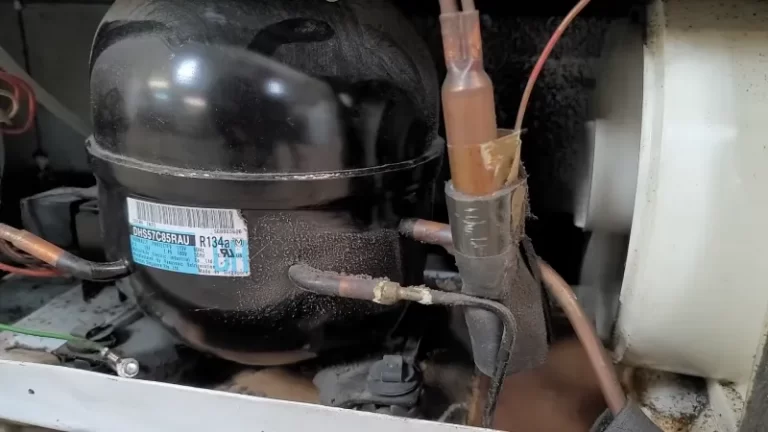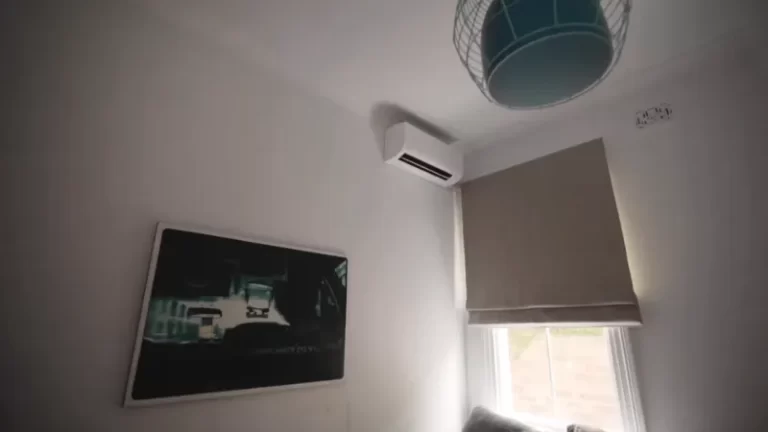Why My Window Ac Overheating?
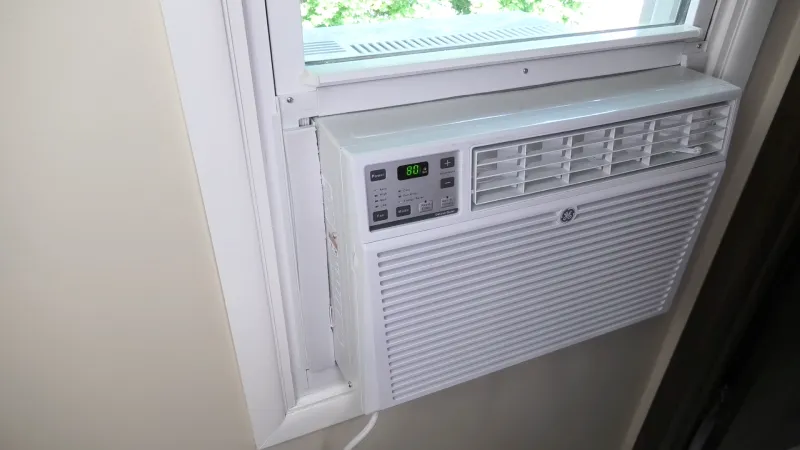
Window air conditioners are a popular and effective way to cool a small space, such as a bedroom or home office. However, like any mechanical device, they can experience problems, including overheating.
Overheating in a window air conditioner can occur for a variety of reasons, including dirty or clogged air filters, a lack of maintenance, direct sunlight, insufficient ventilation, or an incorrect size unit.
In this article, we will explore these common causes of overheating in window ACs and discuss ways to prevent and address this issue.
You'll Learn About
Window Ac Overheating
Window air conditioners can overheat for a variety of reasons. Some common causes of overheating in window air conditioners include:
Dirty or Clogged Air Filters
When the air filters are dirty or clogged, it can restrict the flow of air to the unit, causing it to work harder and potentially overheat
Lack of Maintenance
If the unit has not been regularly maintained, it may have built-up dirt and debris that can cause it to overheat
Direct Sunlight
If the unit is located in a spot that gets direct sunlight for a significant portion of the day, it can heat up and potentially overheat
Insufficient Ventilation
If the unit does not have sufficient ventilation, it may not be able to dissipate heat effectively, leading to overheating
Incorrect Size
If the unit is too small for the space it is cooling, it may run constantly and potentially overheat. On the other hand, if the unit is too large, it may turn on and off frequently, causing it to overheat
To prevent overheating in a window air conditioner, it’s important to regularly clean or replace the air filters, maintain the unit according to the manufacturer’s recommendations, and ensure that it has sufficient ventilation and is not located in direct sunlight.
Additionally, it’s important to choose the correct size unit for the space you are trying to cool. If you are unsure about the size of unit you need, it’s a good idea to consult with a qualified HVAC technician.
Dirty or Clogged Air Filters
Dirty or clogged air filters are a common cause of overheating in window air conditioners. Air filters are designed to capture dirt, dust, and other debris from the air as it passes through the unit. However, over time, these filters can become dirty or clogged, which can restrict the flow of air to the unit.
When the flow of air is restricted, the unit has to work harder to cool the space, which can lead to overheating.
To prevent this issue, it’s important to regularly clean or replace the air filters in your window air conditioner. The frequency with which you need to do this will depend on the manufacturer’s recommendations and the level of use and pollution in your environment.
In general, it’s a good idea to check the air filters every month and clean or replace them as needed. If you are unsure about how to clean or replace the air filters, consult the owner’s manual or a qualified HVAC technician.
Lack of Maintenance
Regular maintenance is important for the proper functioning and longevity of any mechanical device, including window air conditioners. Without regular maintenance, a window AC can experience a variety of problems, including overheating.
There are several key components of a window air conditioner that require regular maintenance to ensure optimal performance. These include the air filters, which should be regularly cleaned or replaced as discussed above.
Additionally, the condenser coils, which are responsible for dissipating heat, should be regularly cleaned to remove any dirt or debris that may have accumulated. The unit’s fins, which help to dissipate heat, should also be regularly straightened to ensure proper airflow.
If these and other maintenance tasks are not performed regularly, it can lead to overheating in the window air conditioner. To prevent this issue, it’s important to follow the manufacturer’s recommended maintenance schedule and perform regular inspections and cleaning of the unit. If you are unsure about how to properly maintain your window AC, it’s a good idea to consult with a qualified HVAC technician.
Direct Sunlight
Direct sunlight can be a major cause of overheating in window air conditioners. When a unit is exposed to direct sunlight for an extended period of time, it can absorb a significant amount of heat, which can cause it to overheat.
To prevent this issue, it’s important to position the window AC in a location that is not directly exposed to sunlight. If this is not possible, you can try shading the unit with an awning or other protective cover. You can also try installing window film or blinds to block some of the sunlight from entering the room.
It’s also a good idea to run the unit during the cooler parts of the day, such as early morning or late evening, when the sun is not as intense. This can help to prevent overheating and improve the unit’s efficiency. If you are still experiencing overheating issues despite these measures, it may be a good idea to consult with a qualified HVAC technician to assess the unit and identify any potential problems.
Insufficient Ventilation
Proper ventilation is crucial for the proper functioning and longevity of a window air conditioner. Without sufficient ventilation, the unit may not be able to dissipate heat effectively, which can cause it to overheat.
To ensure proper ventilation for a window AC, it’s important to follow the manufacturer’s recommendations for installation and placement. This may include leaving a certain amount of space around the unit for airflow, as well as ensuring that the unit is not obstructed by any objects that could block airflow.
It’s also a good idea to regularly check the unit for any signs of restricted airflow, such as a build-up of dirt or debris on the condenser coils or fins. If you notice any issues, it’s important to clean the unit to restore proper ventilation. If you are unsure about how to properly ventilate your window AC, it’s a good idea to consult with a qualified HVAC technician.
Incorrect Size
Choosing the correct size window air conditioner is crucial for ensuring optimal performance and efficiency. If the unit is too small for the space it is trying to cool, it will have to work harder and run constantly to maintain a comfortable temperature, which can lead to overheating. On the other hand, if the unit is too large, it will turn on and off frequently, causing it to overheat due to the constant cycling.
To select the correct size window AC for your space, it’s important to consider the size of the room or area you are trying to cool. You can use a BTU (British Thermal Unit) calculator or consult with a qualified HVAC technician to determine the appropriate size unit for your needs. It’s also a good idea to consider the climate in your area and the type of insulation in your home when selecting a unit.
By choosing the correct size window AC and properly positioning and maintaining it, you can help to prevent overheating and ensure optimal performance and efficiency.
How Do I Stop My Window Air Conditioner From Overheating?
Overheating of a window air conditioner can be caused by several factors and can lead to a reduced cooling efficiency, higher energy bills, and the potential for a dangerous fire. To prevent your window air conditioner from overheating, here are 5 steps to follow:
Replace the Air Filter
The air filter is responsible for removing dust, dirt, and other particles from the air that is being circulated. If the air filter becomes clogged, it can restrict the flow of air, causing the air conditioner to work harder and leading to overheating. To prevent this, it is important to replace the air filter regularly, at least once a month during the cooling season.
Keep the Condenser Coils Clean
The condenser coils play a crucial role in removing heat from the air, and if they are dirty, they can reduce the cooling efficiency and cause the air conditioner to overheat. To clean the condenser coils, turn off the power to the air conditioner, remove the front cover, and use a soft brush or cloth to gently clean the coils.
Check for Low Refrigerant
The refrigerant is responsible for removing heat from the air, and if the level is low, it can cause the air conditioner to work harder and eventually overheat. To check for low refrigerant, a professional HVAC technician should be called to diagnose and repair the issue.
Clean the Fan Blades
The fan blades are responsible for circulating air through the air conditioner, and if they are dirty or clogged, they can cause the air conditioner to work harder and eventually overheat. To clean the fan blades, turn off the power to the air conditioner, remove the front cover, and use a soft brush or cloth to gently clean the blades.
Consider the Unit’s Age
Consider the age of the unit. Over time, the components in an air conditioner can wear out, leading to a reduced cooling efficiency and eventually overheating. If your air conditioner is more than 10 years old, it may be time to consider replacing it with a newer, more energy-efficient model.
Overheating in a window air conditioner can be caused by several factors, including a clogged air filter, dirty condenser coils, low refrigerant levels, dirty fan blades, and the unit’s age. To prevent overheating, it is important to follow these steps and perform regular maintenance on your air conditioner. If you are unable to resolve the issue, a professional HVAC technician should be called to diagnose and repair the problem.
Final Words
Overheating in a window air conditioner is a common problem that can lead to reduced cooling efficiency, higher energy bills, and even a potential fire hazard. To prevent overheating, it is important to replace the air filter regularly, keep the condenser coils clean, check for low refrigerant levels, clean the fan blades, and consider the unit’s age.
By taking these preventative measures, you can ensure that your window air conditioner operates safely and efficiently, providing you with the cool, comfortable indoor environment you deserve.

